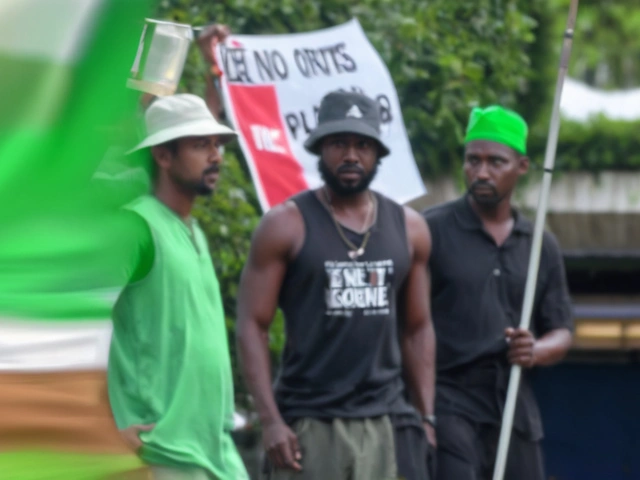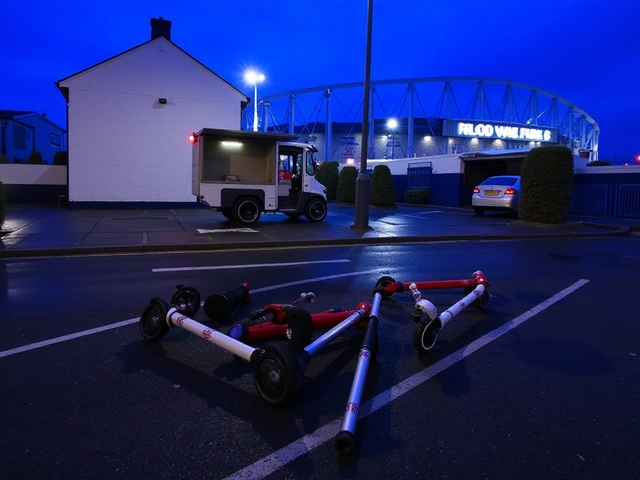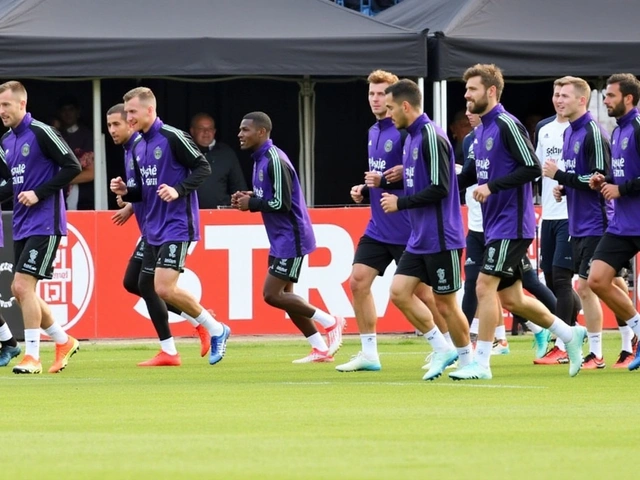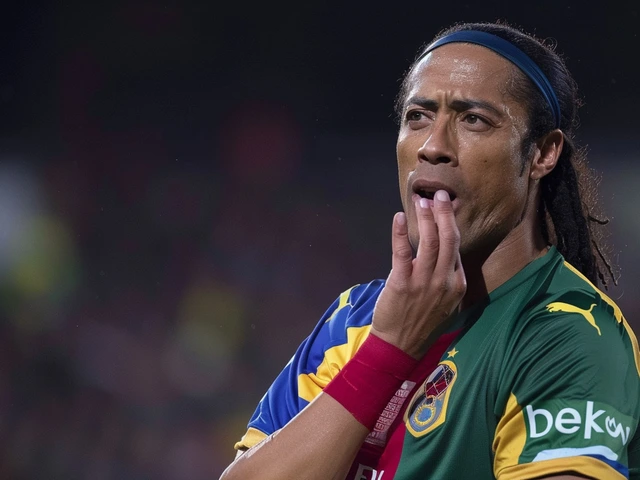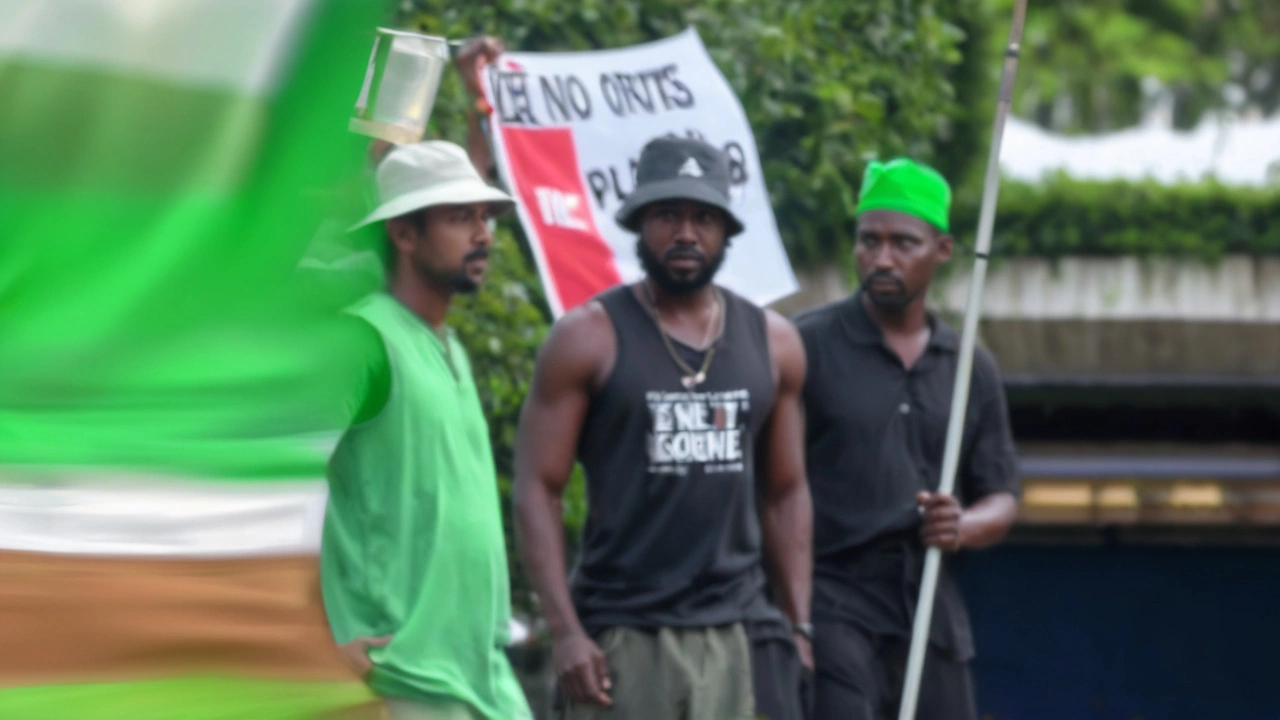
Protesters Challenge Restrictions in Abuja: VeryDarkMan Rebukes Wike on Protester Rights
Protesters Demand the Right to Assemble Anywhere in Abuja
Protester rights were brought into the spotlight when Martin Otse, a social media influencer widely known as VeryDarkMan, responded vehemently to recent comments made by Nyesom Wike, the Minister of the Federal Capital Territory (FCT). The incident has reignited the debate over the fundamental right to protest in Nigeria's capital city, Abuja.
On a tense day marked by frustration, police forces used tear gas to disperse crowds at the Berger Roundabout in Abuja. This action was in response to widespread protests that erupted nationwide, aimed at addressing hunger and criticizing ineffective governance. As the smoke cleared, VeryDarkMan voiced his opposition to Wike's remarks that suggested protesters should be confined to specific locations, such as stadiums.
Resisting Confined Protests
VeryDarkMan drew sharp analogies, stating that confining protesters to a single place is akin to treating them like animals. This comparison resonated strongly among activists and citizens alike, who saw it as a powerful critique of the government's approach to managing civil unrest. 'Nigeria belongs to all its citizens,' he declared, emphasizing that the right to protest should be exercised freely and openly in any part of the capital.
Current conditions in Nigeria have sparked outrage among citizens. The country is grappling with significant issues, including widespread food scarcity and escalating accusations of poor governance. These challenges have driven thousands to the streets, demanding immediate policy changes and reinstatement of subsidies for essential commodities like gas and electricity.
Root Causes of the Discontent
The economic situation in Nigeria has been on a downward spiral, worsening the living conditions for many. The removal of subsidies, which were part of broader economic reforms, has made basic necessities unaffordable for a large section of the population. This move, intended to stabilize the economy, has backfired, leading to a surge in protests.
Furthermore, Nigeria's governance has come under scrutiny with allegations of corruption and mismanagement. The populace accuses the government of ignoring their plight, focusing instead on policies that exacerbate their struggles. In light of these issues, the protests have taken on a significance beyond just immediate economic relief, encompassing broader demands for systemic change.
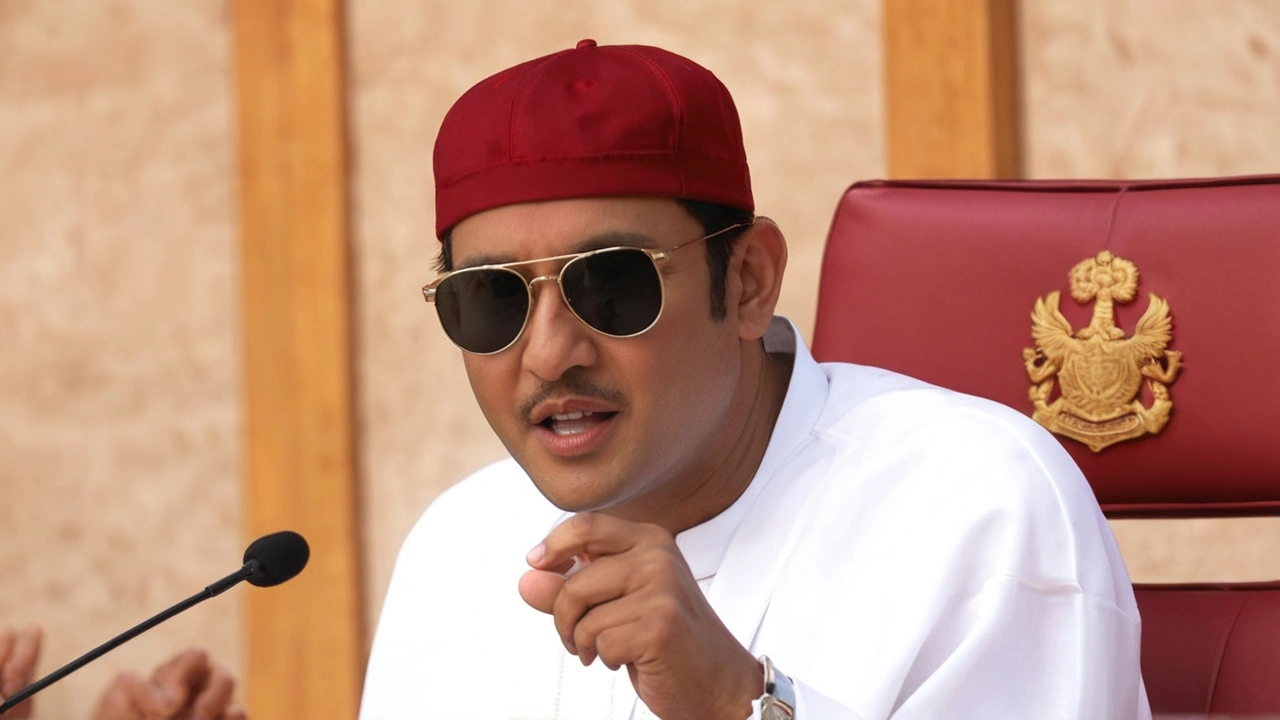
Rising Unrest and Government Response
The nationwide protests, which began on Thursday, have been anything but peaceful. Reports from human rights organizations indicate that at least 13 protesters have been killed by security forces. Hundreds more have been detained, escalating tensions and further alienating the public.
The government's response has been swift and severe. Curfews have been imposed in several states as a measure to contain the unrest. These restrictions, however, have done little to quell the growing anger among Nigerians. Instead, they have added fuel to the fire, with many viewing them as further evidence of the government's oppressive tactics.
A Global Perspective
The events in Nigeria have caught the attention of the international community. Human rights organizations and global observers have condemned the excessive use of force against protesters. The United Nations has expressed concern over the rising death toll and the detention of peaceful demonstrators, calling for an immediate de-escalation and respect for human rights.
Amnesty International and other advocacy groups have issued statements urging the Nigerian government to uphold the right to peaceful protest. They argue that addressing the root causes of the discontent—primarily economic hardship and governance reforms—is essential for restoring peace and stability.
Voices of Protesters
Mary Okoro, one of the protesters, shared her perspective: 'We're not just fighting for food; we're fighting for our future. We want a government that listens, that cares about the people.'
Another protester, Jide Adebayo, emphasized the need for transparency and accountability in governance: 'We need to see where our taxes are going. We need to know that our leaders are working for us, not against us.'
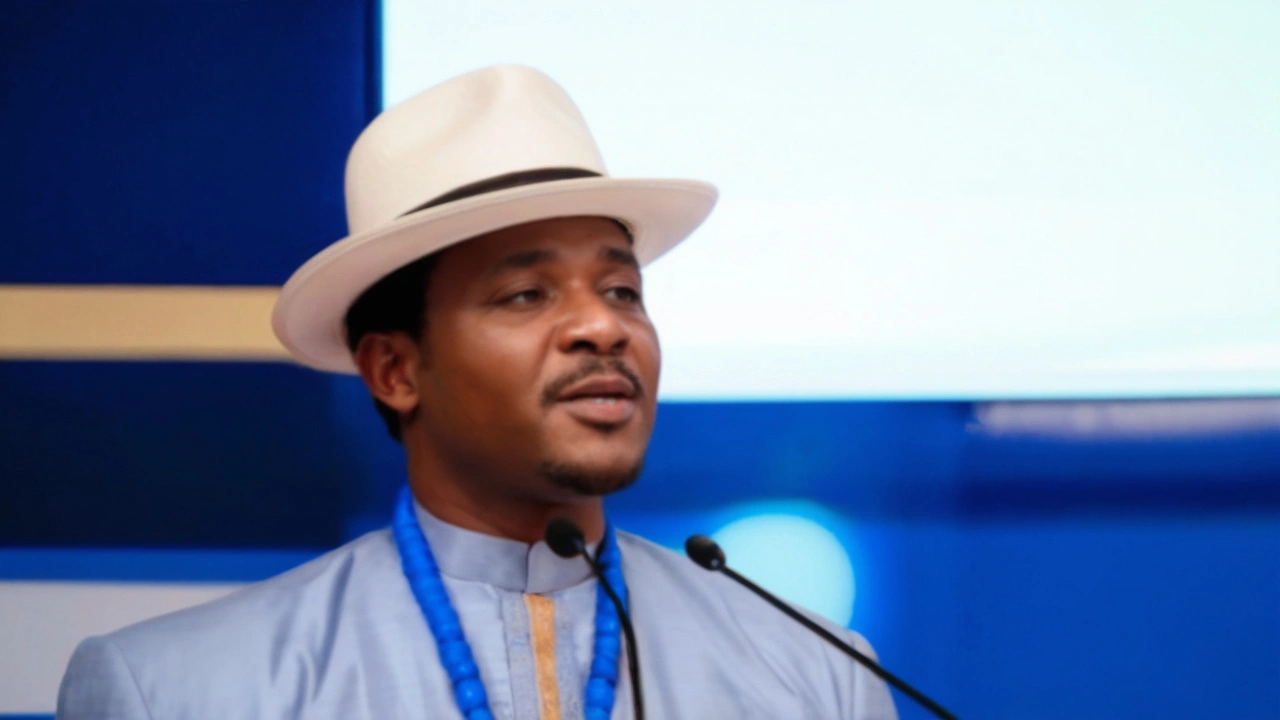
The Road Ahead
As the protests continue, the Nigerian government faces an uphill battle in regaining the trust of its citizens. It is clear that addressing the immediate needs of the population—provision of food and essential services—is critical. However, the demands for structural change and better governance cannot be ignored.
Engaging in meaningful dialogue with protest leaders and taking concrete steps to address their concerns may pave the way for a resolution. While the path forward is challenging, it offers an opportunity for the government to demonstrate its commitment to the welfare of its people.
Conclusion
The situation in Nigeria serves as a stark reminder of the importance of governance that prioritizes the needs of its citizens. As the world watches, the government's actions in the coming weeks will be crucial in determining the country's future. For now, the voices of the protesters continue to echo, demanding change and a better tomorrow for all Nigerians.

